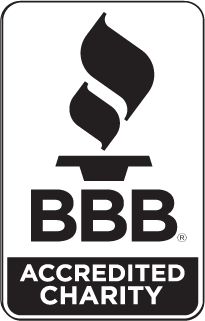Evacuation Orders in Rafah Threaten Safety and Health Care for 1.4 Million

Today’s evacuation orders in eastern parts of Rafah have caused aid services, including two of Project HOPE’s medical points, to temporarily close as staff are forced to evacuate.
Escalating violence and new evacuation orders have already had deadly and destructive consequences for Palestinians sheltering in Rafah, which was declared a safe zone after relentless violence left most of Gaza uninhabitable. Today, over a dozen people died from airstrikes, and more than 110,000 people were told they needed to evacuate to areas north of Rafah City.
As a result of several staff living in or near the evacuation zone, Project HOPE has suspended some activities in Rafah. Project HOPE’s medical unit in Al Shouka which is in the evacuation zone has paused operations, while the static clinic in Jafar Al-Tayyar displacement camp is working on reduced hours as staff have needed to leave to check on their families and prepare for potential further evacuations. The team will reassess operations on a day-to-day basis moving forward. Project HOPE planned to send surgical staff from the Jordanian Health Aid Society – International (JHASi) into Rafah today to support Kamal Adwan Hospital in Beit Lahia, where limited emergency medical teams have been able to access the devastated areas. Yet, staff were denied entry due to the closing of the Rafah border crossing which has been closed without notice as airstrikes hit dangerously close to the crossing, restricting the flow of lifesaving aid from entering Gaza.
Moses Kondowe, Project HOPE’s Gaza Team Lead based in Rafah, said:
“We are witnessing a brutal and inhumane escalation of this conflict. Fear and chaos erupted in Rafah today. People are terrified. Thousands of people living in or near the evacuation zone have been forced to quickly pack up what they have and make plans to move to al-Mawasi or other areas in Gaza including Deir al Balah and Khan Younis, areas that have been under heavy bombardment and do not have adequate aid services, running water or electricity. People are relocating for the first time, including my colleagues who are forced to move their children and elderly relatives without any assurance of safety or basic services at their next destination.
Today, we had to close two of our medical clinics ahead of schedule despite the overwhelming need because our team members had to quickly prepare to forcibly relocate. These medical points are in underserved displacement camps and are the only health care many people have. Our clinics provide on average over 1,000 consultations per week in Rafah. As more people flee and violence continues here, services like these will be forced to suspend indefinitely – cutting thousands off from lifesaving food, medicine, and other aid. We can expect to see cases of malnutrition, pregnancy complications, and other health conditions like Hepatitis A and cholera increase.”
One thing is clear – any further violence in Rafah could have catastrophic consequences for the millions who sought refuge here, believing it to be the last ‘safe place’ in Gaza.”
Project HOPE is actively supporting Palestinian communities affected by the conflict. Our team in Gaza is operating medical points in Rafah and Deir al Balah. We also have emergency and trauma medical staff providing care at Al Aqsa Hospital in Deir Al Balah through our partner JHASi. Project HOPE is providing mental health support through local partners and has distributed family hygiene kits, mattresses, and blankets to ANERA. We have key medical supplies and pharmaceuticals that are in the process of entering Gaza.
For Media Inquiries: Contact bjustus@projecthope.org (WhatsApp: +1 503-764-7864) or media@projecthope.org.








